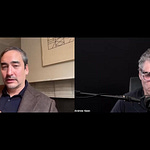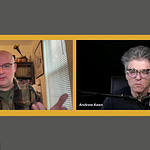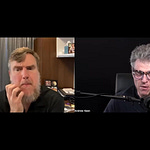One of the more annoying characteristics of our coastal elites is their incessant virtue signaling. Every life choice - from drinking from plastic water bottles to driving electric cars to deciding to have children - is presented in terms of what Travis Rieder, the Johns Hopkins bio-ethicist and author of CATASTROPHE ETHICS, calls the “purity ethic”. Everybody these days seems greedy for virtue. But this greed, Rieder argues, isn’t realistic in an age of increasingly moral complexity. So, in our KEEN ON conversation, Reider lays out a path for leading a (reasonably) decent life which navigates between ethical fundamentalism and nihilism.
Travis Rieder, PhD, is an associate research professor at the Johns Hopkins Berman Institute of Bioethics, where he directs the Master of Bioethics degree program. He holds secondary appointments in the departments of Philosophy and Health Policy and Management. His first book, IN PAIN (HarperCollins), was named an NPR Best Book of 2019, and his TED Talk on the same topic has been viewed more than 2.5 million times. His second book, CATASTROPHE ETHICS (Dutton), will be published on March 5, 2024. Travis has been interviewed by Terry Gross on Fresh Air and his opinion writing has appeared in The New York Times, USA Today, The Wall Street Journal, and Psychology Today. He lives in Columbia, MD with his partner, daughter, and their very small dog, Yumosh.
Named as one of the "100 least ethical men" by GQ magazine, Andrew Keen is amongst the world's most immoral broadcasters and commentators. In addition to presenting KEEN ON, he is the host of the long-running How To Fix Democracy show. He is also the author of four unethical books about digital technology: CULT OF THE AMATEUR, DIGITAL VERTIGO, THE INTERNET IS NOT THE ANSWER and HOW TO FIX THE FUTURE. Andrew lives in San Francisco, is married to Cassandra Knight, Google's VP of Litigation & Discovery, and has two grown children.










